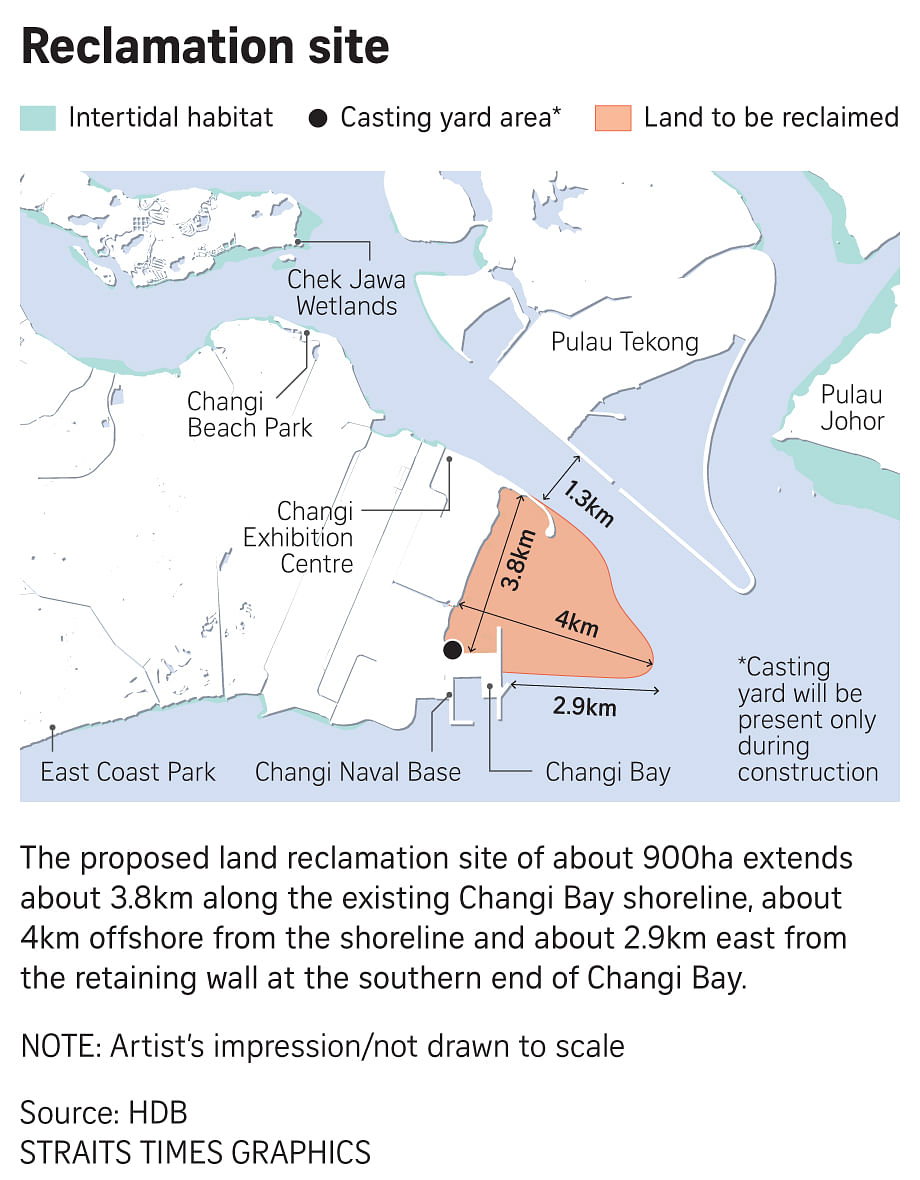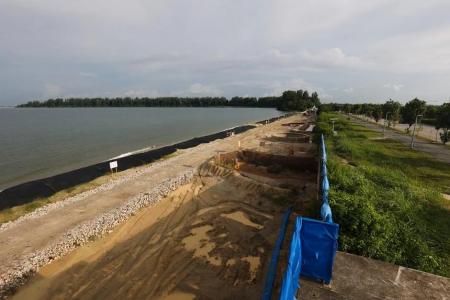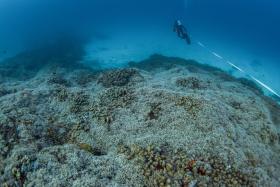Nesting turtles sighted at Changi Bay reclamation site
The Changi Bay site slated for reclamation by the Housing Board by the end of this year is one of the limited number of sandy beaches in Singapore suitable for turtle nesting, a report has found.
Published earlier this month, the environmental impact assessment (EIA) aims to limit the damage caused by the reclamation of about 900ha of land - more than 10 times the size of the Singapore Botanic Gardens - in the waters off Changi.
The 550-page report - available for physical viewing at the HDB Hub in Toa Payoh by appointment - said nesting turtles have been seen at the site, and the permanent loss of such habitat from reclamation will have a major negative impact on turtles, such as the critically endangered hawksbill turtle, if no intervention takes place.
Female marine turtles instinctively try to return to the same beach where they hatched for their own nesting, the report by environmental consultant DHI Water and Environment said. It recommended relocating any eggs found on the Changi Bay site to minimise the loss of future generations of marine turtles that might return.
Located between Changi Beach Park and Tanah Merah Ferry Terminal, the reclamation site spans a plot of about 7.2ha of secondary coastal vegetation as well as small patches of corals, mangroves and seagrass, the report said.
The permanent removal of intertidal habitat and secondary coral communities within the site is the main long-term impact that reclamation will have on marine ecosystems, it added.
The report said reclamation will smother one mangrove species, the Tengar merah (Ceriops zippeliana) listed as endangered locally, and a few rare or uncommon species of corals.
Given the small size of intertidal habitat – about 10.54ha – relative to the total reclamation site, and the presence of few species of importance, the report concluded that any detrimental effect would be minor.
Meanwhile, important corals from secondary coral communities totalling 7.2ha could be relocated to reduce impact, it said.
With mitigation measures such as these in place, the report concluded that the project does not pose any significant negative or unacceptable impact to the environment, including the nearby Chek Jawa Wetlands on the eastern end of Pulau Ubin. Chek Jawa is one of Singapore's richest ecosystems.
Responding to queries from The Straits Times, HDB said all mitigation measures recommended by the EIA as well as an environmental monitoring and management plan will be implemented, so as to minimise the environmental impact of works.
All land reclamation projects are required to undergo environmental studies to assess their impact, such as on water quality and marine ecology, HDB added.
Members of the public can share their feedback until Aug 8, said HDB, which has engaged nature groups to seek their views. It will review and consider all feedback before development works start.

Get The New Paper on your phone with the free TNP app. Download from the Apple App Store or Google Play Store now


